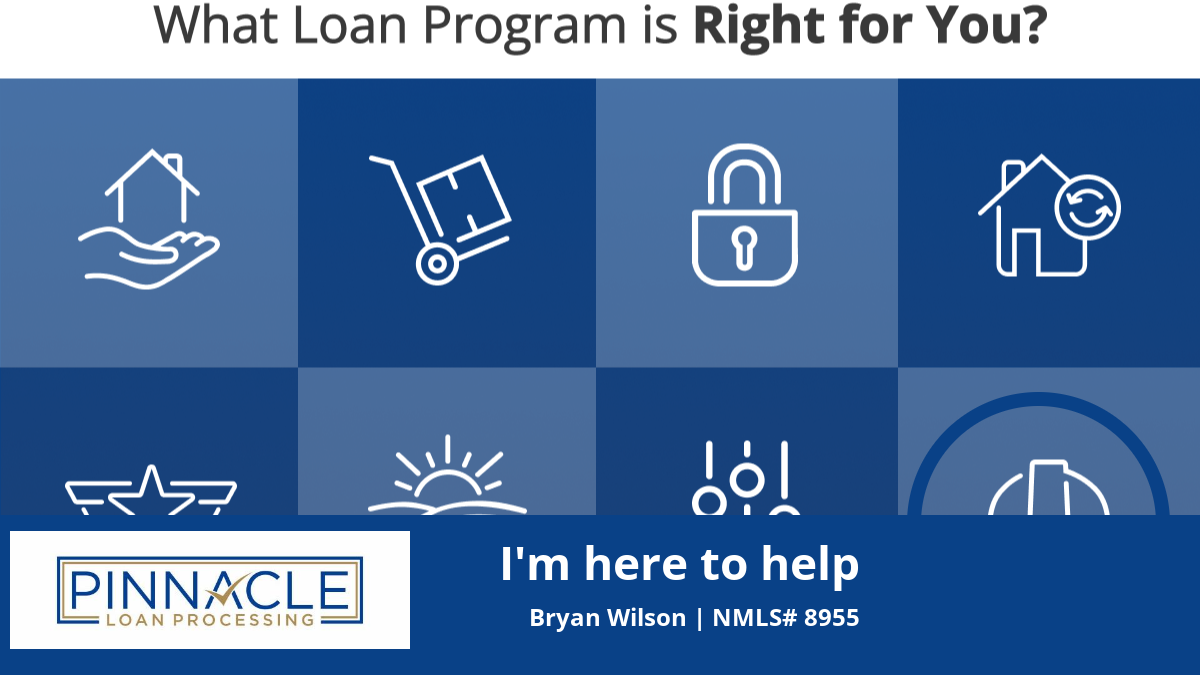Questions to Ask When Deciding On A Home Loan Program

Here are some of the top questions to ask before deciding on the type of loan to apply for.
How do I qualify for a loan? Several factors come into play regarding which program you are eligible for. However, the foundation to all your mortgage options lies in telling us about your income, credit, assets, and the type of property you hope to purchase.
How much house can I afford? It's essential to nail down your affordability before you start home shopping. Use our online calculator to get a close estimate of your payment. You can also pre-qualify with us to see the most accurate affordability scenarios.
How much should I save for a down payment? The minimum amount needed for a down payment depends on the loan program and whether you want to avoid particular fees from your monthly mortgage payment. For example, many loan programs allow for a 3-3.5% down payment, but it may require that your mortgage insurance or property taxes be built into the loan payment.
Putting down a little more may help avoid these costs in your monthly mortgage payment; however, it's not necessary. We have affordable loan options with low monthly payments that ask for as little as 0-3% down! Remember that while a higher down payment has its perks, so do low down payment ones.
What types of home loans do you offer? We have a wide variety of loan types available to meet your specific needs and requirements. So whether you are a first-time buyer, an investor, a veteran, or a retiree looking to make life more comfortable using your equity, we can match you with the right loan and payment that fits your needs.
✅ Benefits of Contract Loan Processing for VA Loans
-
Specialized VA Knowledge
-
VA loans have unique requirements (COE, residual income, funding fee calculations, appraisal requirements).
-
A contract processor experienced in VA loans can spot potential issues early and streamline the process.
-
-
Cost Savings for Lenders
-
No need to hire full-time staff; processors are paid per file.
-
Helps smaller brokerages or lenders manage fluctuating loan volumes without carrying extra payroll.
-
-
Faster Turn Times
-
Contract processors often work remotely and are paid per closed file, so they’re incentivized to move loans quickly.
-
They can push COE requests, follow up on VA appraisals, and ensure VA-specific forms (26-1880, 26-8923) are completed on time.
-
-
Compliance & Accuracy
-
VA has strict guidelines (e.g., allowable fees, seller concessions, and veteran protections).
-
A skilled processor reduces risk of compliance errors that could lead to loan buybacks or funding delays.
-
-
Scalability
-
During high volume seasons (e.g., rate drops, PCS military moves), lenders can bring on extra processors quickly without long-term HR commitments.
-
-
Reduced Loan Officer Burden
-
Lets LOs focus on originating, networking, and serving clients while the processor handles gathering DD-214s, income docs, pest inspection reports (if required), and underwriting conditions.
-
-
Improved Borrower Experience
-
Veterans and active-duty borrowers often value clear communication and speed.
-
A processor who knows the VA process can anticipate documentation needs and prevent last-minute surprises.
-
👉 In short: Contract processors help lenders stay lean, compliant, and efficient, while ensuring veterans have a smoother experience.
Get Your
FREE eBOOK
